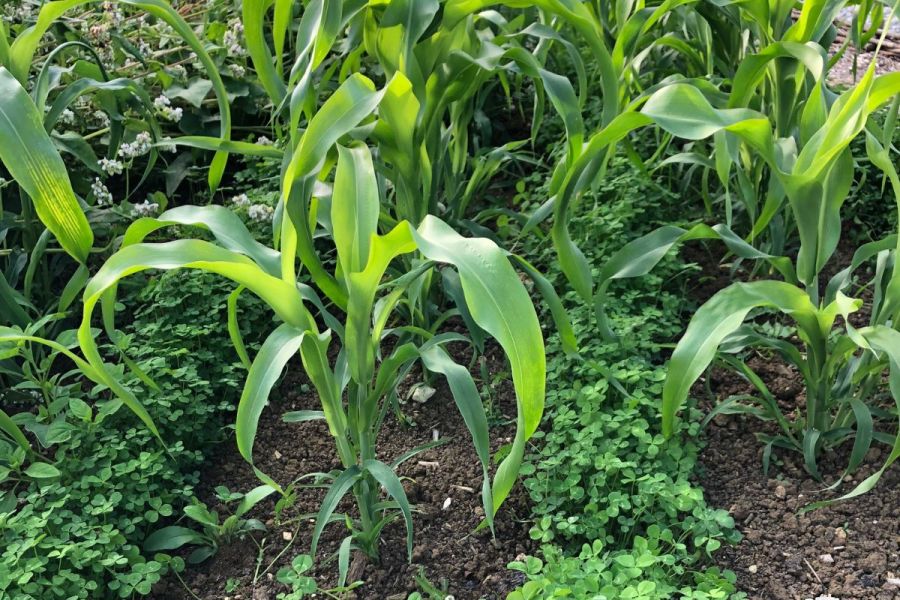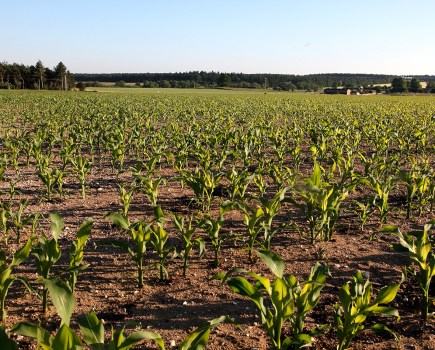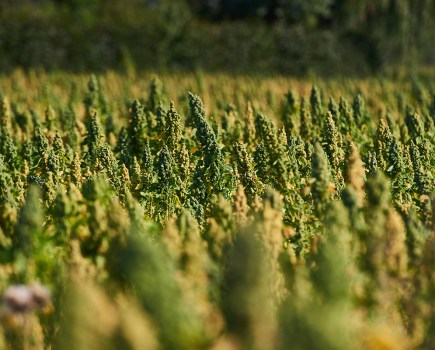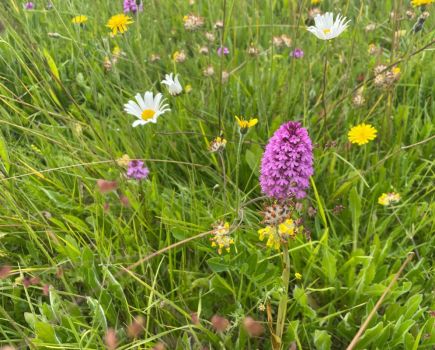Following this year’s Groundswell event, CPM caught up with 2024’s Soil Farmer of the Year to find out how they’re making the most of the ground below.
“We can literally watch the difference to the soil which comes from investing in it.”
By Charlotte Cunningham
Although soil is often coined as a farmer’s greatest asset, there are some going above and beyond to protect and rejuvenate this brown gold…
This includes David Newman and Tracy Russell, who claimed the coveted title of this year’s Soil Farmer of the Year at the recent Groundswell event.
David and Tracy operate a market garden business – Bucksum – at Shabbington Fields Farm in Buckinghamshire and have been beating the drum about how prioritising soil health can provide real tangible benefits for a farm business since its inception in 2006.
Delving deeper into the workings of Bucksum, the business was founded initially on the premise of growing baby leaf salad, explains David. “At the time, baby leaf salad had just started to appear in the supermarkets and I was disappointed with the quality and price, so I started experimenting with growing my own and selling it at farmers markets.
“This slowly grew and we started to incorporate different mixes, which meant we went from one small polytunnel to where we are today – growing about 40 different crops, seasonally.”
Almost 20 years later, the operation now sits across 6.5ha with around 1.6ha cropped each year. It works on a four-year rotation taking a cash crop every fourth year, with the other three years spent regenerating the soil, explains David. “The area is divided into eight 0.4ha plots. Two of those are cropped each year and the other six are put into what we call a fertility building phase.”
In practice, this means that following a cash crop plot being harvested, a herbal ley is established which remains in situ for three years. The mix is from Cotswold Seeds and includes deep rooting species such cocksfoot and chicory, as well as ryegrass, trefoil and clovers. “We’ve tailored the mix so it doesn’t include things like brassicas as we don’t want to perpetuate any soil-borne issues which could occur with us growing brassicas in the cash crop years.”
In terms of management, during the past three years the pair have been grazing the cover crops with another local farmer’s sheep – the Chilton Grounds Farm flock. “As well as providing a cost-effective way of managing the herbal leys, the soil also benefits from the manure which helps further build organic matter levels and soil health,” notes David.
More recently, they’ve also been experimenting with establishing living mulches in the cash crops to double up on both a saleable crop and building soil health in the same year, adds David, and he’s also looking to experiment with strip tillage to minimise movement of the soil when establishing the cash crops. In terms of crop protection, minimal chemistry is used and instead companion plants like catmint are used to ward off issues such as flea beetle.
The plots are divided by lines of agroforestry fruit trees, which as well as bringing more biodiversity also creates a useful natural windbreak, explains David. “Each line comprises about 120 fruit trees – mainly apples and pears, but some stone fruit too.”
Now in the fourth year of incorporating the trees, David says though it’s worked well, there are challenges with managing the trees so that they don’t become too overgrown, and also controlling the weeds. “To overcome this, we started using chickens to clear the ground. Their house is moved along the tree line on a daily basis and we’ve found that they’re brilliant for controlling both pests and keeping down the weeds which otherwise could overrun and outcompete the trees.”
Tracy adds: “It’s amazing to see just how effective they are; they’re also really useful for controlling field voles which are a problem for fruit trees.”
In the polytunnels, David and Tracy are also producing their own soil improver. “This is made via green waste from the growing system including tomatoes and sweet potatoes, which are composted with spent hops from a local brewery and woodchips. This is then fed back into the system to keep our soils healthy by building microorganism levels. We’re really focused on managing our soils more naturally and in keeping with how they would have been traditionally looked after, rather than having to rely on artificial inputs.”
It’s a long game, though, with the woodchip having to be stored for 6-12 months beforehand to avoid it taking up nitrogen to break itself down in the compost. “If you start that breaking down process before it’s added to the compost you end up with a product that’s usable in about six months,” explains Tracy. “It’s taken years of experimenting to figure out what works best in the soil improver and we’ve made mistakes. Once, we bought in some council composted material which resulted in bringing in all sorts of weeds and problems – it was awful, and we never did it again.”
In terms of marketing, the duo have formed relationships with chefs – including celebrity chefs Tom Kerridge and Raymond Blanc – and have opened their own farm shop where the bulk of produce is sold through. They also work with other local producers to expand the shop’s offering to include soft and stone fruit. “We have a lot of very regular customers,” says Tracy. “We’re open two half days a week and it’s not uncommon for people to come on both days.
“The shop is embedded in the local community and because people trust us, they’re always willing to try something new. It’s all about having conversations about what’s seasonal and how eating seasonal produce can help significantly reduce the environmental impact of food production. For example, people have stopped asking for broccoli all-year-round.”
While their business is focused mainly on salad production, the learnings regarding soil health are something that larger scale arable farmers can use too. “Keeping soils covered – and roots in the soil – is key, as well as cultivating as minimally as you can get away with,” says David. “But most importantly, go and look at other people’s farms, join webinars and use social media to find out what other growers are doing. Farming is about continual learning and it’s always worth giving something new a go.
“On a large scale, market gardening is seen as one of the most damaging types of farming but it doesn’t have to be. At the scale we are, we can literally watch the difference to the soil which comes from investing in it. There are so many benefits, both economically and environmentally, of improving soils and nurturing nature.”
This article was taken from the latest issue of CPM. Read the article in full here.
For more articles like this, subscribe here.
Sign up for Crop Production Magazine’s FREE e-newsletter here.




